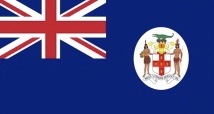Language/Jamaican-creole-english/Grammar/Plurals
Hi Jamaican Creole English learners! 😊
In this lesson, we will learn about plurals in Jamaican Creole English. Using the correct plural form is essential to communicate effectively. Don't worry, I will teach you everything you need to know, and we will have some fun along the way by exploring interesting facts about Jamaican culture. Are you ready? Let's dive in!
Consider broadening your understanding by checking out these related lessons: Adjectives, Questions & Give your Opinion.
Plurals[edit | edit source]
In Jamaican Creole English, most plurals are formed by adding the suffix "-dem" to the singular. Let's take a look at some examples:
| Jamaican Creole English | Pronunciation | English |
|---|---|---|
| Bwoy | bwoy-dem | Boys |
| Book | buk-dem | Books |
| House | ous-dem | Houses |
| Jamaican | Jumiekan-dem | Jamaicans |
As you can see, it's pretty straightforward. Just add "-dem" to the end of the noun. However, there are some exceptions. For instance, some nouns use a different suffix, and others change entirely. Let's take a look at some examples:
| Jamaican Creole English | Pronunciation | English |
|---|---|---|
| Child | pikni | Children |
| Foot | fiit | Feet |
| Man | man / man-dem | Men |
| Mouse | mous / mous-dem | Mice |
| Woman | uman / ooman-dem | Women |
I know it can be confusing, but don't worry! Practice makes perfect. 💪🏾
It's essential to know that some nouns don't have a plural form in Jamaican Creole English. For example, "rice" is the same in the singular and plural form.
Interesting Facts about Jamaican Culture[edit | edit source]
Did you know that the Maroons, the descendants of runaway slaves, are an essential part of Jamaican history and culture? They have their language, music, and traditions. The Maroons were able to escape from slavery and established independent communities in the mountains of Jamaica. They fought fiercely against the British colonial forces and were able to win many battles. They were able to preserve their culture and way of life, which remains prevalent in Jamaica today.
In the Maroon language (Jamaican Maroon Creole), plurals are formed by repeating the noun. For instance, "kuk" means "cook," and "kuk-kuk" means "cooks." Amazing, isn't it? 🤩
Dialogue[edit | edit source]
Here's an example of a dialogue in Jamaican Creole English, using plurals:
- Person 1: A who dat bwoy? (Who is that boy?)
- Person 2: A di bwoy-dem weh go a mi school. (It's the boys that go to my school.)
Practice Exercise[edit | edit source]
Let's practice using plural forms: 1. Book 2. Mango 3. Chair 4. Police 5. Woman
Answers: 1. Buk-dem 2. Mango-dem 3. Chair-dem 4. Police 5. Ooman-dem
Remember, practice makes perfect! 💪🏾
To improve your Jamaican Creole English Grammar, you can also use the Polyglot Club website. Find native speakers and ask them any questions!

